Home>diy>Building & Construction>What Is A Controller In Construction


Building & Construction
What Is A Controller In Construction
Modified: August 28, 2024
Learn what a controller does in building construction and how it influences project management, cost control, and resource allocation. Discover its significance in ensuring successful construction projects.
(Many of the links in this article redirect to a specific reviewed product. Your purchase of these products through affiliate links helps to generate commission for Storables.com, at no extra cost. Learn more)
Introduction
When it comes to successful construction projects, effective management and coordination are key. One essential role in the construction industry is that of a controller. A construction controller acts as a financial manager, overseeing the financial aspects of a project to ensure its smooth operation and adherence to budgets.
In this article, we will delve into the world of construction controllers, exploring their responsibilities, qualifications, and the challenges they face in their day-to-day work. We will also discuss the importance of effective construction controller management and highlight emerging trends in the field.
Construction projects involve significant financial investments and complex financial processes. A construction controller plays a crucial role in monitoring and managing these financial aspects to reduce risks, mitigate costs, and ensure the overall financial health of the project. They work closely with project managers, accountants, and other stakeholders to track expenses, analyze financial data, and make informed decisions.
The responsibilities of a construction controller can vary depending on the size and scope of the project, as well as the organizational structure of the construction company. However, their core duties typically include budgeting, financial reporting, cost analysis, cash flow management, and overseeing compliance with financial regulations.
A construction controller is responsible for developing and managing the project budget. This includes estimating costs, creating budget forecasts, and tracking financial performance throughout the project timeline. They closely monitor expenses, ensuring that they align with the allocated budget and making recommendations for adjustments if necessary.
Financial reporting is another critical aspect of a construction controller’s role. They prepare and analyze financial reports, providing insights into the project’s financial status, profitability, and cost variances. These reports help inform decision-making processes and allow stakeholders to understand the project’s financial performance at any given time.
Cost analysis is a crucial part of a construction controller’s responsibilities. They analyze project expenses, identifying areas where cost savings can be achieved and advising on the most cost-effective strategies. By closely monitoring costs and implementing cost-saving measures, construction controllers contribute to the overall profitability of the project.
Cash flow management is also within the purview of a construction controller. They ensure that sufficient funds are available to meet financial obligations, such as paying suppliers, subcontractors, and workers. They establish financial controls and processes to optimize cash flow and prevent unnecessary delays or disruptions in the project.
Furthermore, construction controllers are responsible for ensuring compliance with financial regulations and guidelines. They stay updated on relevant laws and regulations, making sure that all financial transactions and reporting meet legal requirements.
Effective construction controller management is crucial for the success of construction projects. A skilled and experienced controller can help optimize the project’s financial performance, prevent cost overruns, and improve overall profitability. They provide valuable financial insights and recommendations, enabling project managers and stakeholders to make informed decisions.
However, being a construction controller comes with its share of challenges. Rapidly evolving technology, increasingly complex financial regulations, and the need to stay updated on industry best practices are just a few of the hurdles they must navigate. Construction controllers must continuously adapt and hone their skills to meet these challenges effectively.
In the next sections of this article, we will explore the qualifications and skills required for a construction controller, as well as strategies and best practices for effective controller management. We will also discuss emerging trends in construction controller roles and how they are shaping the future of the industry.
Key Takeaways:
- Construction controllers play a crucial role in managing project budgets, analyzing costs, and ensuring compliance with financial regulations, contributing to the financial success of construction projects.
- Embracing technology, staying updated on industry trends, and fostering collaboration are essential for construction controllers to navigate emerging trends and challenges in the construction industry effectively.
Read more: How To Control Construction Dust
Definition of a Controller in Construction
A controller in construction refers to a financial professional who is responsible for overseeing and managing the financial aspects of construction projects. They play a pivotal role in ensuring the financial health and stability of the project by effectively managing budgets, analyzing costs, and implementing financial controls.
The role of a construction controller goes beyond traditional accounting tasks. While they do handle financial reporting, budgeting, and cost analysis, their responsibilities extend to overseeing compliance with financial regulations, optimizing cash flow, and providing valuable insights to support decision-making processes.
One of the primary functions of a construction controller is to develop and manage the project budget. They collaborate with project managers, estimators, and other stakeholders to estimate costs and create a comprehensive budget that takes into account materials, labor, equipment, and other expenses. This budget serves as a roadmap for managing project finances effectively.
In addition to budgeting, construction controllers are responsible for financial reporting. They prepare and analyze financial statements, including income statements, balance sheets, and cash flow statements. By providing accurate and timely financial information, construction controllers enable stakeholders to assess the project’s financial performance and make informed decisions.
Cost analysis is another crucial aspect of a construction controller’s role. They closely monitor project expenses, comparing them with the budgeted amounts and identifying any cost deviations. By analyzing these cost variances, construction controllers can identify areas where costs can be optimized and make recommendations to enhance the project’s financial efficiency.
Financial compliance is of utmost importance in the construction industry, and a construction controller ensures that all financial transactions and reporting adhere to regulatory requirements. They stay updated on relevant financial regulations, such as tax laws and industry-specific guidelines, to guarantee compliance and prevent any potential legal issues.
Optimizing cash flow is another vital responsibility of a construction controller. They manage the cash flow of the project, ensuring that there is sufficient liquidity to meet financial obligations such as paying suppliers, subcontractors, and laborers. By implementing effective cash flow management strategies, construction controllers minimize the risk of financial shortages or delays that could disrupt the progress of the project.
Overall, a construction controller plays a critical role in maintaining financial stability, minimizing risks, and maximizing profitability in construction projects. They bring a combination of financial expertise and industry knowledge to ensure that projects are financially successful and meet their objectives.
As construction projects become increasingly complex, and financial management becomes more intricate, the role of a construction controller continues to evolve. Construction controllers must stay abreast of emerging technologies, best practices, and industry trends to effectively manage the financial aspects of construction projects and contribute to their success.
Responsibilities and Duties of a Construction Controller
A construction controller has a wide range of responsibilities and duties related to financial management and control in construction projects. Their primary objective is to ensure the financial health and success of the project by effectively managing budgets, analyzing costs, and overseeing compliance with financial regulations. Let’s explore some of the key responsibilities and duties of a construction controller:
- Budgeting: One of the primary responsibilities of a construction controller is to develop and manage the project budget. They collaborate with project managers, estimators, and other stakeholders to estimate costs and create a comprehensive budget that encompasses all project expenses. They monitor project expenditures against the budget and make recommendations for adjustments if necessary.
- Financial Reporting: Construction controllers are responsible for preparing and analyzing financial reports for the project. They generate income statements, balance sheets, cash flow statements, and other financial documents to provide stakeholders with a clear understanding of the project’s financial performance. They also identify and analyze any variances in costs and revenues to inform decision-making processes.
- Cost Analysis: Construction controllers closely monitor project expenses and conduct cost analyses to identify areas where costs can be optimized. They compare actual costs with budgeted amounts, analyze cost variances, and make recommendations to reduce expenses and improve financial efficiency. This helps the project stay within budget and increases its profitability.
- Financial Compliance: Ensuring compliance with financial regulations and guidelines is a critical duty of a construction controller. They stay updated on relevant laws and regulations, such as tax regulations and industry-specific financial standards, to ensure that all financial transactions and reporting meet legal requirements. They also collaborate with external auditors to ensure the accuracy and integrity of financial records.
- Cash Flow Management: Construction controllers are responsible for managing the project’s cash flow. They monitor cash inflows and outflows, ensuring that there is sufficient liquidity to meet financial obligations such as paying suppliers, subcontractors, and workers. They also implement strategies to optimize cash flow and prevent any potential cash flow issues that could impact the progress of the project.
- Financial Analysis: Construction controllers conduct in-depth financial analysis to provide insights into the project’s financial performance. They analyze revenue trends, profit margins, and return on investment to assess the overall financial health of the project. This analysis helps stakeholders make informed decisions and develop strategies to maximize profitability.
- Financial Forecasting: Construction controllers play a crucial role in financial forecasting. They use historical financial data, current project information, and industry trends to forecast future financial performance. This allows project stakeholders to plan and make strategic decisions based on projected financial outcomes.
- Collaboration and Communication: Construction controllers work closely with project managers, accountants, and other stakeholders to ensure effective financial management. They collaborate on budgeting, financial forecasting, and cost analysis, providing valuable insights and recommendations. They also communicate financial information and reports to project teams and stakeholders, ensuring transparency and facilitating informed decision-making.
These responsibilities and duties highlight the crucial role that construction controllers play in the financial management and control of construction projects. Their expertise ensures that projects are financially successful, risks are minimized, and the objectives of the project are met. By effectively managing budgets, analyzing costs, and ensuring compliance with financial regulations, construction controllers contribute to the overall success and profitability of construction projects.
Importance of a Controller in Construction Projects
A construction project is a collaborative effort that involves numerous stakeholders, resources, and financial investments. In such a complex environment, the role of a construction controller becomes invaluable. They act as financial managers, overseeing the financial aspects of the project and ensuring its smooth operation. The importance of a construction controller in construction projects cannot be overstated. Let’s explore why they are crucial:
- Financial Oversight: Construction projects involve substantial financial resources. A construction controller provides financial oversight by monitoring and managing project budgets, tracking expenses, and analyzing costs. This helps prevent cost overruns and ensures that funds are allocated effectively.
- Risk Mitigation: Effective financial management is essential for managing project risks. A construction controller identifies potential financial risks and takes proactive measures to mitigate them. They institute financial controls, implement budgetary restraints, and analyze cost variances to prevent financial setbacks.
- Cost Control: Construction projects are susceptible to cost fluctuations due to various factors such as material prices, labor costs, and unforeseen circumstances. A construction controller plays a crucial role in monitoring project costs, analyzing cost deviations, and implementing strategies to control and optimize expenses. This maximizes the project’s profitability and ensures that it stays within budget.
- Financial Planning and Forecasting: A construction controller contributes to the financial planning and forecasting of the project. They use historical data, current financial information, and industry trends to develop accurate forecasts of the project’s financial performance. This enables stakeholders to make informed decisions and plan for future financial requirements.
- Compliance and Governance: Construction projects operate under a framework of financial regulations and governance guidelines. A construction controller ensures compliance with these regulations, including tax laws, accounting standards, and industry-specific financial guidelines. This mitigates the risks of legal issues and facilitates transparency and accountability in project finances.
- Financial Reporting: Clear and accurate financial reporting is essential for stakeholders to assess the project’s financial health. A construction controller prepares financial statements and reports that provide insights into key financial metrics, such as revenue, costs, and profitability. These reports help stakeholders make informed decisions and understand the project’s financial performance.
- Cash Flow Management: Cash flow management is critical for the smooth operation of a construction project. A construction controller ensures that sufficient cash flow is maintained by monitoring project inflows and outflows, optimizing payment schedules, and proactively managing working capital. This helps prevent delays, ensures timely payments to suppliers and subcontractors, and facilitates the continuous progress of the project.
- Decision Support: Construction controllers provide financial insights and recommendations to support decision-making processes. By analyzing financial data, assessing the financial impact of different scenarios, and conducting cost-benefit analyses, they help project stakeholders make informed decisions that align with the project’s goals and objectives.
The role of a construction controller is vital in maintaining financial stability, minimizing risks, and maximizing profitability in construction projects. Their expertise in financial management, cost control, compliance, and reporting ensures that projects are financially successful and meet their objectives. By effectively managing budgets, analyzing costs, and ensuring compliance with financial regulations, construction controllers contribute to the overall success and profitability of construction projects.
Qualifications and Skills Required for a Construction Controller
A construction controller is a crucial role in the construction industry, responsible for managing the financial aspects of construction projects. To excel in this position, individuals need to possess a combination of qualifications and skills that are essential for effective financial management in the construction industry. Let’s explore the qualifications and skills required for a construction controller:
- Bachelor’s Degree in Finance or Accounting: A strong educational background in finance or accounting is typically required for a construction controller position. A bachelor’s degree in finance, accounting, or a related field provides individuals with a solid foundation in financial management principles, budgeting, cost analysis, and financial reporting.
- Construction Industry Knowledge: Familiarity with the construction industry is highly valuable for a construction controller. Understanding the unique aspects of construction projects, such as project lifecycles, cost structures, and industry-specific financial regulations, enables controllers to effectively manage project finances and make informed decisions.
- Experience in Financial Management: Prior experience in financial management roles is essential for a construction controller. Experience in budgeting, financial reporting, cost analysis, and cash flow management provides controllers with the necessary skills to oversee the financial aspects of construction projects. It also helps them handle the unique challenges and complexities inherent in construction financial management.
- Knowledge of Financial Regulations: Financial regulations and guidelines play a crucial role in construction project finances. A construction controller should have a strong understanding of relevant financial regulations, such as accounting standards, tax laws, and industry-specific financial guidelines. This ensures compliance with financial regulations and minimizes the risk of legal issues.
- Analytical and Problem-Solving Skills: Construction controllers need excellent analytical skills to evaluate financial data, identify cost variances, and develop strategies to optimize project finances. They must be able to analyze complex financial information, interpret trends, and make informed recommendations to improve financial performance and control costs.
- Attention to Detail: Given the intricate nature of construction project finances, attention to detail is crucial for a construction controller. They need to carefully review financial documents, budgets, and cost reports to ensure accuracy and identify potential errors or discrepancies. Meticulous attention to detail helps maintain the integrity of financial records and supports effective decision-making.
- Communication and Collaboration: Construction controllers need excellent communication and collaboration skills to effectively interact with project managers, accountants, and other stakeholders. They must be able to explain complex financial concepts in a clear and concise manner and build strong working relationships to facilitate collaboration and cooperation in financial management processes.
- Technological Proficiency: Proficiency in financial software applications and technology is essential for a construction controller. They should be adept at using accounting and project management software to track project finances, generate financial reports, and analyze financial data efficiently. Knowledge of Microsoft Excel and other spreadsheet programs is also essential for data analysis and financial modeling.
- Adaptability and Continuous Learning: The construction industry is dynamic, with evolving technologies, financial regulations, and best practices. A construction controller should possess adaptability and a willingness to continuously learn and stay updated on industry trends and changes. This enables them to effectively navigate the challenges and complexities of construction project finances.
These qualifications and skills are key to becoming a successful construction controller. They provide the foundation needed to manage construction project finances, optimize costs, ensure compliance, and contribute to the overall success of construction projects. With the right qualifications and skills, a construction controller can make a significant impact on the financial health and stability of construction projects.
A controller in construction is responsible for managing the financial aspects of a project, including budgeting, cost control, and financial reporting. They play a crucial role in ensuring the project stays within budget and financial goals are met.
Read more: How To Control Quality In Construction
Challenges Faced by Construction Controllers
Being a construction controller comes with a range of challenges that arise from the complex nature of construction project finances. Construction projects are dynamic, involving multiple stakeholders, fluctuating costs, and intricate financial processes. Construction controllers must navigate these challenges effectively to ensure the financial success of the project. Let’s explore some of the key challenges faced by construction controllers:
- Managing Multiple Projects: Construction controllers often need to manage finances for multiple projects simultaneously. This can be demanding and requires exceptional organizational and multitasking skills to ensure that each project receives adequate financial oversight and attention.
- Budget Variability: Construction projects often face budget variability due to unpredictable factors, such as material price fluctuations, labor shortages, and scope changes. Construction controllers need to be adaptable and responsive to these changes, adjusting budgets and financial plans accordingly to ensure financial stability.
- Complex Cost Allocation: Allocating costs accurately across different project phases, cost codes, and cost centers can be challenging. Construction controllers need to have a deep understanding of project operations and financial management techniques to ensure that costs are correctly allocated and reported.
- Cash Flow Management: Managing cash flow in construction projects can be complex due to the uneven distribution of payments from clients, subcontractors, and suppliers. Construction controllers must carefully monitor cash inflows and outflows, proactively manage working capital, and implement strategies to prevent any cash flow gaps that could disrupt the project’s progress.
- Regulatory Compliance: The construction industry is subject to various financial regulations, including accounting standards, tax laws, and industry-specific guidelines. Staying updated on these regulations and ensuring compliance can be challenging for construction controllers. They must navigate the complexities of financial regulations to avoid legal issues and penalties.
- Risk Management: Construction projects are exposed to a range of financial risks, such as cost overruns, delays, and contractual disputes. Construction controllers must identify and mitigate these risks through effective financial management practices, such as cost analysis, contingency planning, and risk assessment.
- Technological Advancements: The rapid advancement of technology in the construction industry presents both opportunities and challenges for construction controllers. While technology can streamline financial processes, construction controllers need to adapt and stay updated on emerging technologies, software applications, and tools to effectively manage financial data and reporting.
- Collaboration and Communication: Construction controllers often work closely with project managers, accountants, and other stakeholders. Effective collaboration and communication are essential for successful financial management. However, coordinating and aligning different perspectives, priorities, and approaches can be challenging, requiring effective communication and interpersonal skills.
- Continuous Learning: The construction industry is constantly evolving, with new regulations, industry trends, and best practices emerging regularly. Construction controllers must commit to continuous learning and professional development to stay updated on industry changes and enhance their financial management skills.
Overcoming these challenges requires a combination of technical expertise, adaptability, effective communication, and problem-solving skills. By proactively addressing these challenges, construction controllers can navigate the intricacies of construction project finances and contribute to the financial success of the projects they oversee.
Strategies and Best Practices for Effective Construction Controller Management
Effective construction controller management is crucial for the financial success of construction projects. By implementing strategies and best practices, construction controllers can optimize financial management processes, mitigate risks, and contribute to overall project success. Here are some strategies and best practices for effective construction controller management:
- Establish Clear Financial Objectives: Clearly define and communicate the financial objectives of the project. This ensures that all stakeholders are aligned and working towards the same goals. Clear objectives provide a framework for financial decision-making and help guide the construction controller’s management strategies.
- Develop Accurate and Comprehensive Budgets: Work closely with project managers, estimators, and other stakeholders to develop accurate and comprehensive budgets. Thoroughly estimate costs, consider contingencies, and incorporate industry benchmarks to ensure realistic budgetary expectations. Regularly review and update budgets as the project progresses.
- Implement Robust Financial Controls: Establish financial controls to minimize the risk of fraud, errors, and mismanagement. Segregate financial duties and responsibilities, conduct internal audits, and enforce strict approval processes for expenditures. Implementing technological tools, such as financial management software, can also enhance control and streamline processes.
- Maintain Accurate and Timely Financial Reporting: Prepare and deliver accurate and timely financial reports to project stakeholders. Develop standardized reporting formats and frequencies to ensure consistent and transparent information. Provide comprehensive analysis and insights into financial performance for informed decision-making.
- Monitor and Analyze Costs: Continuously monitor and analyze project costs to identify potential deviations and areas for optimization. Implement cost tracking mechanisms, conduct ongoing cost analysis, and compare actual costs against budgeted amounts. Regularly communicate cost performance to stakeholders and recommend strategies for cost control and efficiency improvement.
- Proactively Manage Cash Flow: Develop cash flow management strategies to ensure sufficient liquidity for the project’s financial obligations. Monitor cash inflows and outflows, assess payment schedules, and negotiate favorable terms with vendors and subcontractors. Implement effective collection processes to minimize delays in payments from clients.
- Stay Updated on Financial Regulations: Stay informed about applicable financial regulations, including accounting standards, tax laws, and industry-specific guidelines. Regularly review policies and procedures to ensure compliance. Engage with external auditors and advisors to validate compliance and seek guidance on complex financial matters.
- Embrace Technology: Leverage technology solutions to streamline financial management processes. Utilize financial management software, project management tools, and data analytics platforms to enhance efficiency, accuracy, and collaboration. Automation can improve data integrity and reduce manual errors.
- Foster Collaboration and Communication: Establish effective communication channels and foster collaborative relationships with project team members, accountants, and stakeholders. Regularly communicate financial insights, risks, and opportunities to stakeholders. Collaborate with other departments to align financial management with other project activities.
- Emphasize Continuous Learning and Development: Stay updated on industry trends, emerging technologies, and best practices related to construction financial management. Engage in professional development activities, attend industry conferences and seminars, and participate in networking opportunities. Encourage continuous learning among the finance team to enhance skills and knowledge.
By implementing these strategies and best practices, construction controllers can enhance financial management processes, mitigate risks, and contribute to the overall financial success of construction projects. Effective construction controller management is crucial for maintaining financial stability, ensuring compliance, and optimizing project profitability.
Emerging Trends in Construction Controller Roles
The construction industry is rapidly evolving, driven by technological advancements, changing regulations, and shifting project requirements. As a result, the role of a construction controller is also experiencing significant changes and facing new challenges. Here are some emerging trends in construction controller roles:
- Digital Transformation: The construction industry is embracing digital transformation, and construction controllers must adapt to this changing landscape. They are increasingly utilizing cloud-based financial management software, data analytics tools, and mobile applications to streamline processes, enhance data accuracy, and improve collaboration. Embracing technology enables construction controllers to make more informed financial decisions, automate repetitive tasks, and efficiently manage project finances.
- Forecasting and Predictive Analytics: Construction controllers are leveraging forecasting and predictive analytics to enhance financial planning and decision-making. By analyzing historical data, industry trends, and project-specific factors, controllers can develop more accurate financial forecasts, anticipate potential issues, and make proactive adjustments to budgets and strategies. Forecasting and predictive analytics help stakeholders understand the financial implications of different scenarios and make informed choices.
- Sustainability and Green Construction: The emphasis on sustainability in construction projects is impacting the role of construction controllers. They are increasingly involved in assessing the financial viability of green construction practices, analyzing the return on investment for sustainable features, and tracking the costs and benefits associated with environmentally friendly initiatives. Construction controllers play a vital role in monitoring and reporting the financial impact of sustainable practices on project budgets and cash flow.
- BIM Integration: Building Information Modeling (BIM) integration is becoming more prevalent in construction projects. Construction controllers are exploring ways to leverage BIM data to enhance financial management processes. By integrating BIM with financial software, controllers can have real-time access to project information, optimize cost estimating, and improve change order management. BIM integration allows for better tracking of costs and provides a holistic view of the financial position of the project.
- Collaborative Project Management: Construction projects are increasingly adopting collaborative project management approaches, such as Integrated Project Delivery (IPD) and lean construction methodologies. Construction controllers are actively involved in multidisciplinary teams, collaborating with project managers, architects, engineers, and subcontractors. They contribute their financial expertise and help align project management goals with financial objectives. Collaboration and integration of financial management processes with other project activities enhance transparency, efficiency, and overall project success.
- Risk Management and Compliance: As construction projects become more complex, construction controllers are placing greater emphasis on risk management and compliance. They actively identify, assess, and mitigate financial risks associated with construction projects. Construction controllers stay updated on evolving financial regulations and industry-specific guidelines to ensure compliance. Proactive risk management and robust compliance processes help protect project finances, minimize legal issues, and maintain stakeholder confidence.
- Big Data and Artificial Intelligence: Construction controllers are exploring the potential of big data and artificial intelligence (AI) in financial management. They use data analytics to extract valuable insights from large volumes of project data, track financial performance, and identify trends and patterns. AI technologies, such as machine learning algorithms, can assist in predictive modeling, fraud detection, and automated data analysis. These technologies empower construction controllers to make data-driven financial decisions and improve overall project performance.
- Integrated Financial Reporting: With the increasing complexity of construction projects, integrated financial reporting is gaining prominence. Construction controllers aim to provide comprehensive financial reports that integrate data from different sources, such as accounting systems, project management software, and BIM models. Integrated financial reporting offers stakeholders a holistic view of project finances, enhances transparency, and facilitates more accurate financial analysis and decision-making.
These emerging trends in construction controller roles highlight the need for construction controllers to adapt to evolving industry demands. By staying updated on industry trends and leveraging technology, construction controllers can navigate these changes effectively, contribute to project success, and ensure optimum financial management in construction projects.
Conclusion
In conclusion, a construction controller plays a critical role in ensuring the financial success of construction projects. They are responsible for managing project budgets, analyzing costs, implementing financial controls, and ensuring compliance with financial regulations. The role of a construction controller is evolving in response to emerging trends and challenges in the construction industry.
Effective construction controller management is key to optimizing project finances, mitigating risks, and facilitating informed decision-making. By establishing clear financial objectives, developing accurate budgets, and implementing robust financial controls, construction controllers can enhance financial management processes. They should also embrace technology, such as financial management software and data analytics tools, to streamline operations and improve accuracy.
Furthermore, construction controllers should actively monitor and analyze project costs, manage cash flow, and stay updated on financial regulations and industry best practices. Collaboration and effective communication with project stakeholders are crucial for successful financial management. Constant learning and development are essential to keep pace with emerging trends and technologies in the construction industry.
As the construction industry continues to evolve, construction controllers will face new challenges and opportunities. Trends such as digital transformation, sustainability, and integration of technologies like BIM and AI will reshape the role of construction controllers. It is crucial for construction controllers to adapt to these trends, leverage technology, and acquire the necessary skills to effectively navigate the changing landscape.
By embracing these strategies, construction controllers can contribute to the financial stability, profitability, and overall success of construction projects. Their expertise in financial management, cost control, compliance, and reporting ensures that projects are financially successful and meet their objectives. Construction controllers play a vital role in maintaining financial stability, minimizing risks, and optimizing the financial health of construction projects.
Frequently Asked Questions about What Is A Controller In Construction
Was this page helpful?
At Storables.com, we guarantee accurate and reliable information. Our content, validated by Expert Board Contributors, is crafted following stringent Editorial Policies. We're committed to providing you with well-researched, expert-backed insights for all your informational needs.

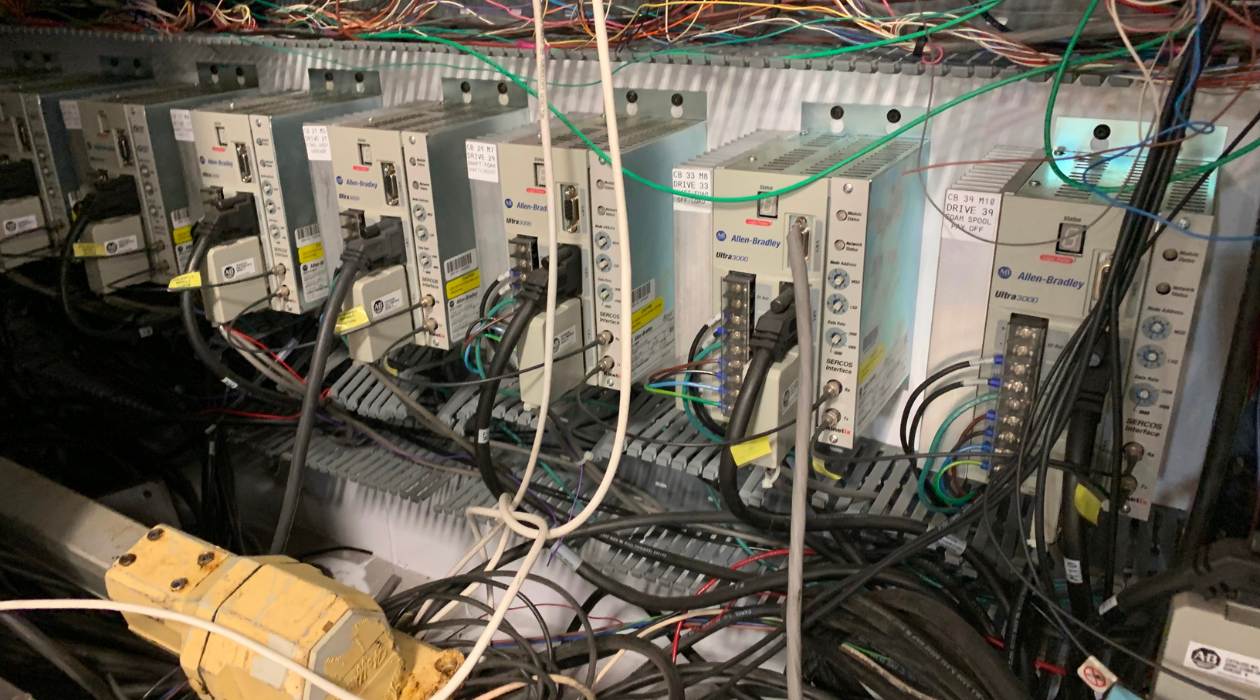

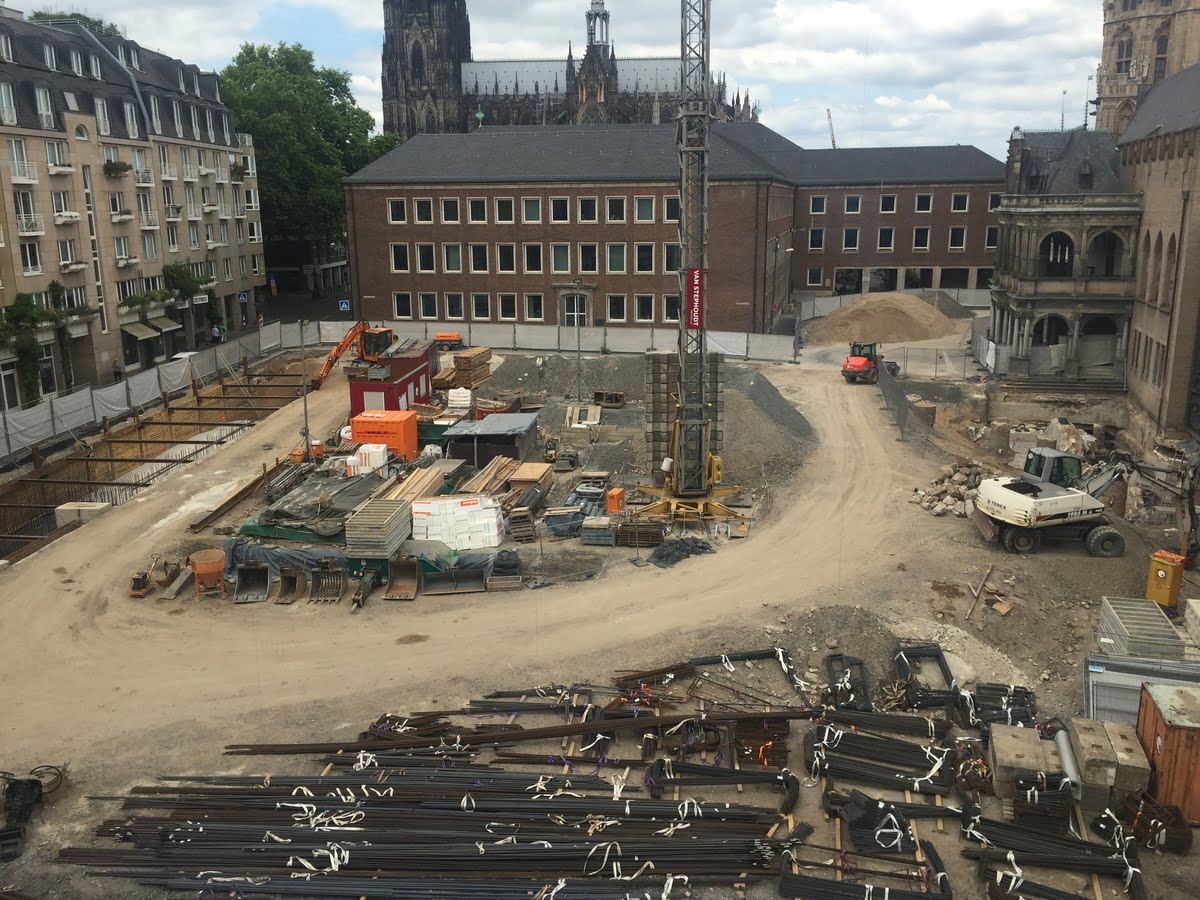

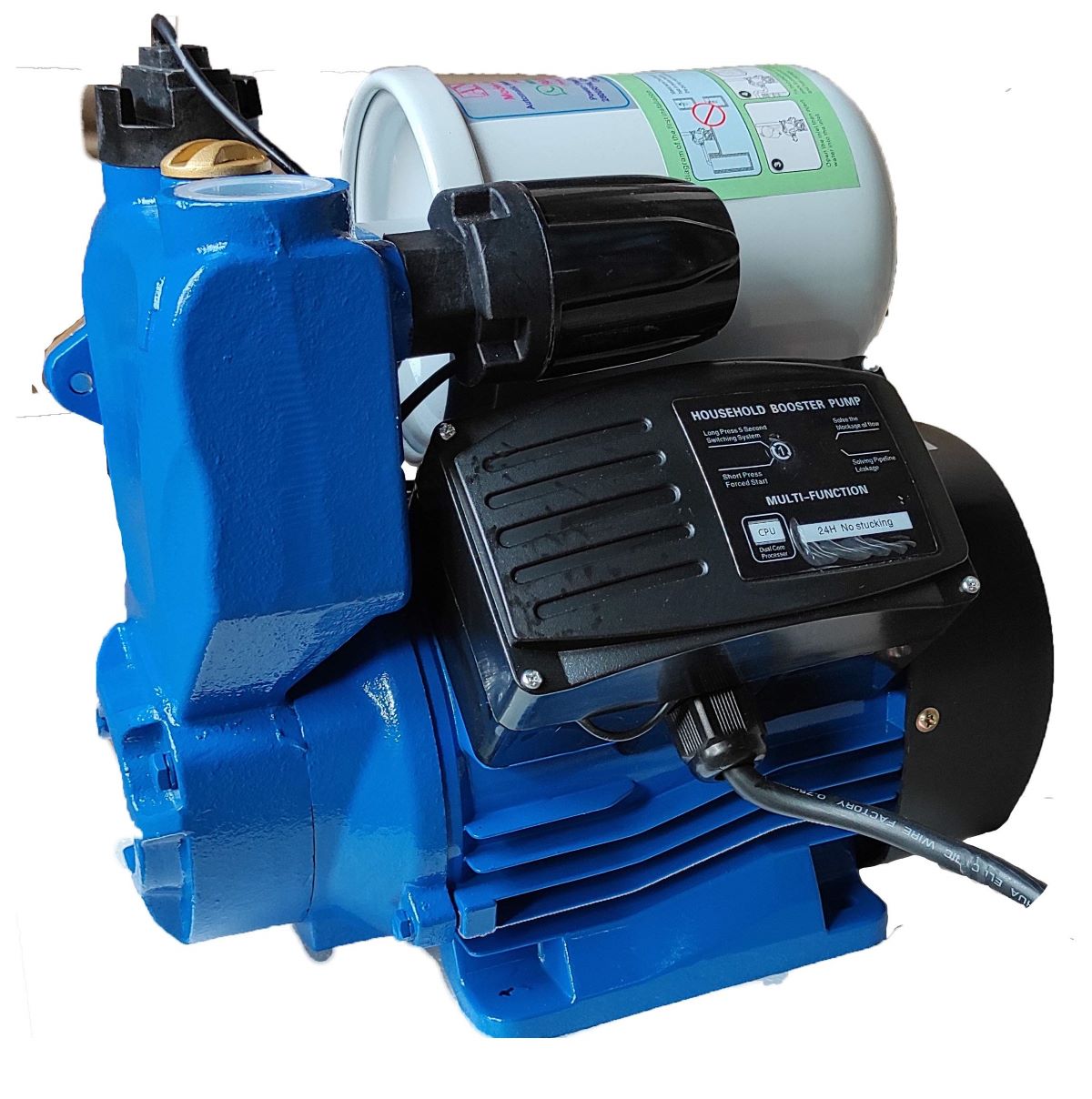



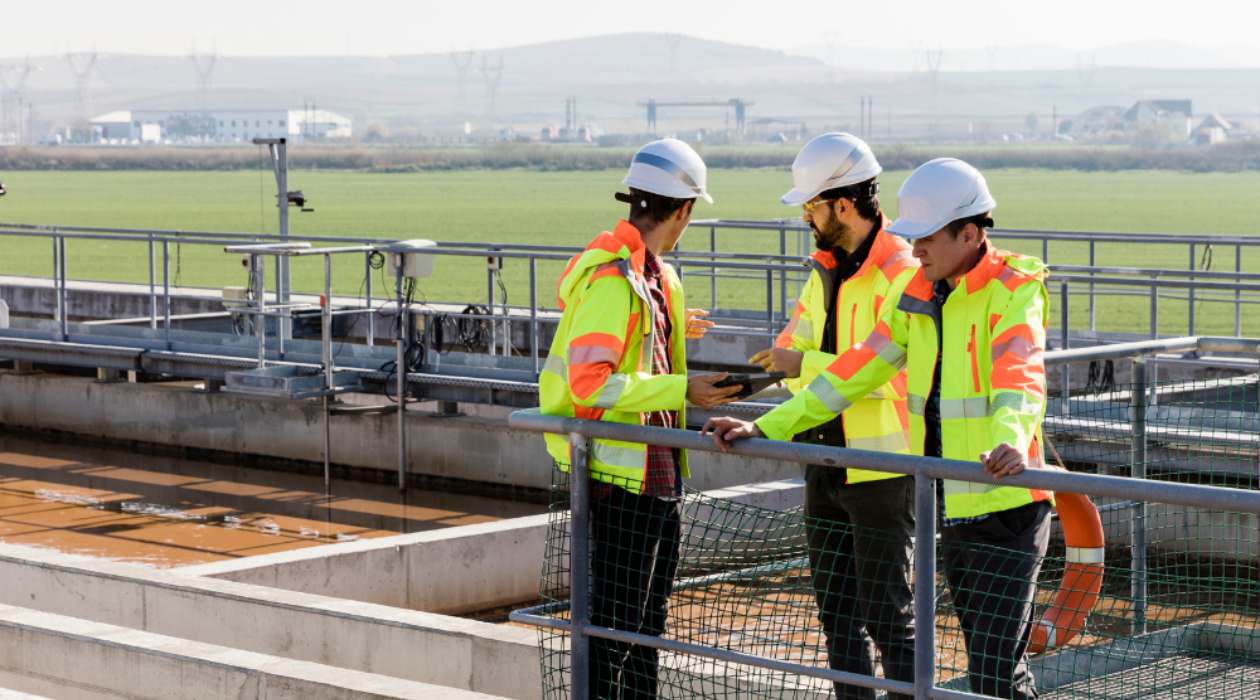
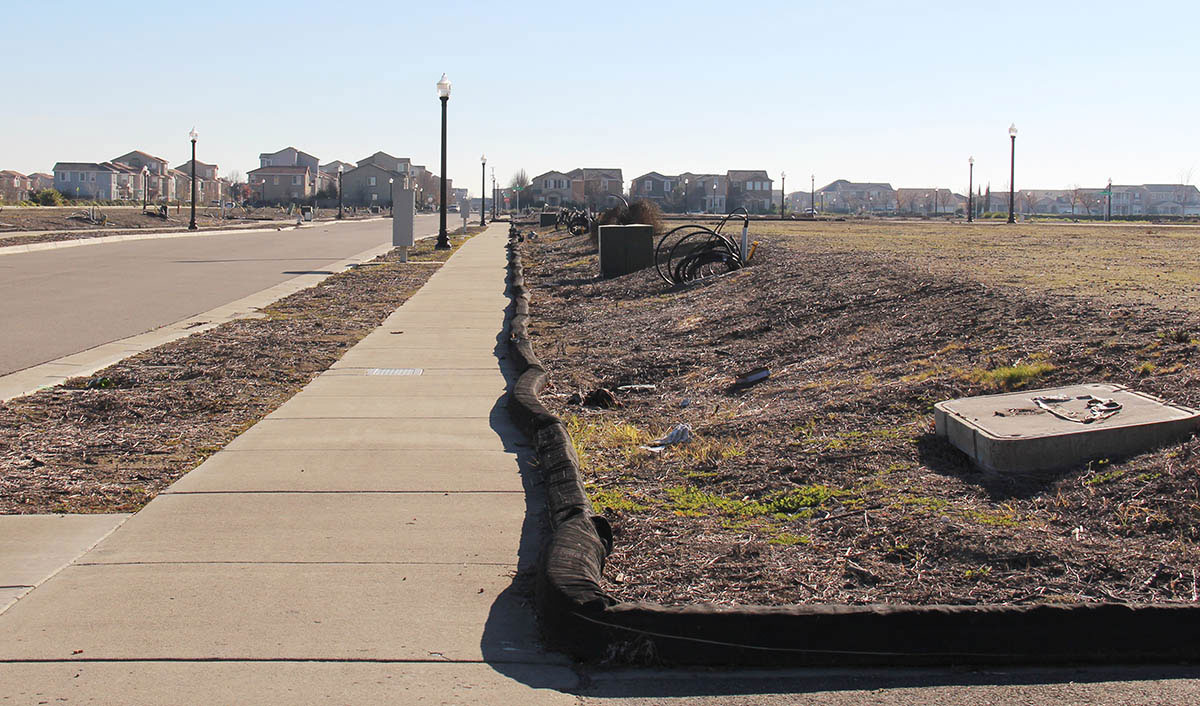
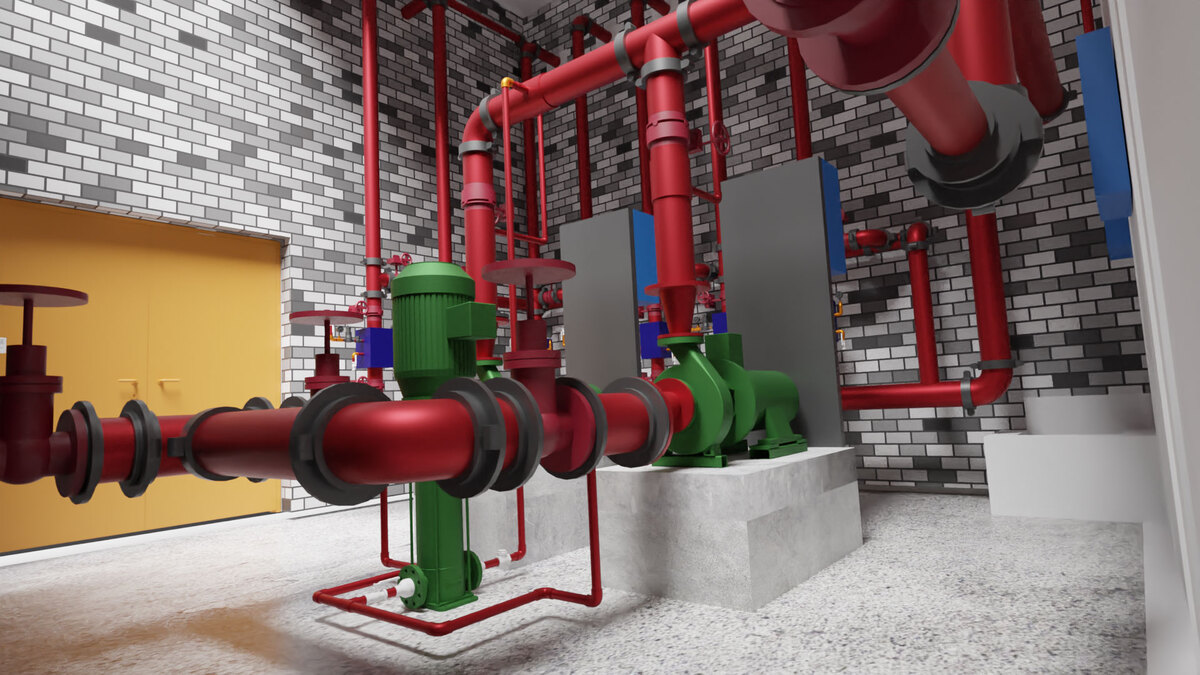
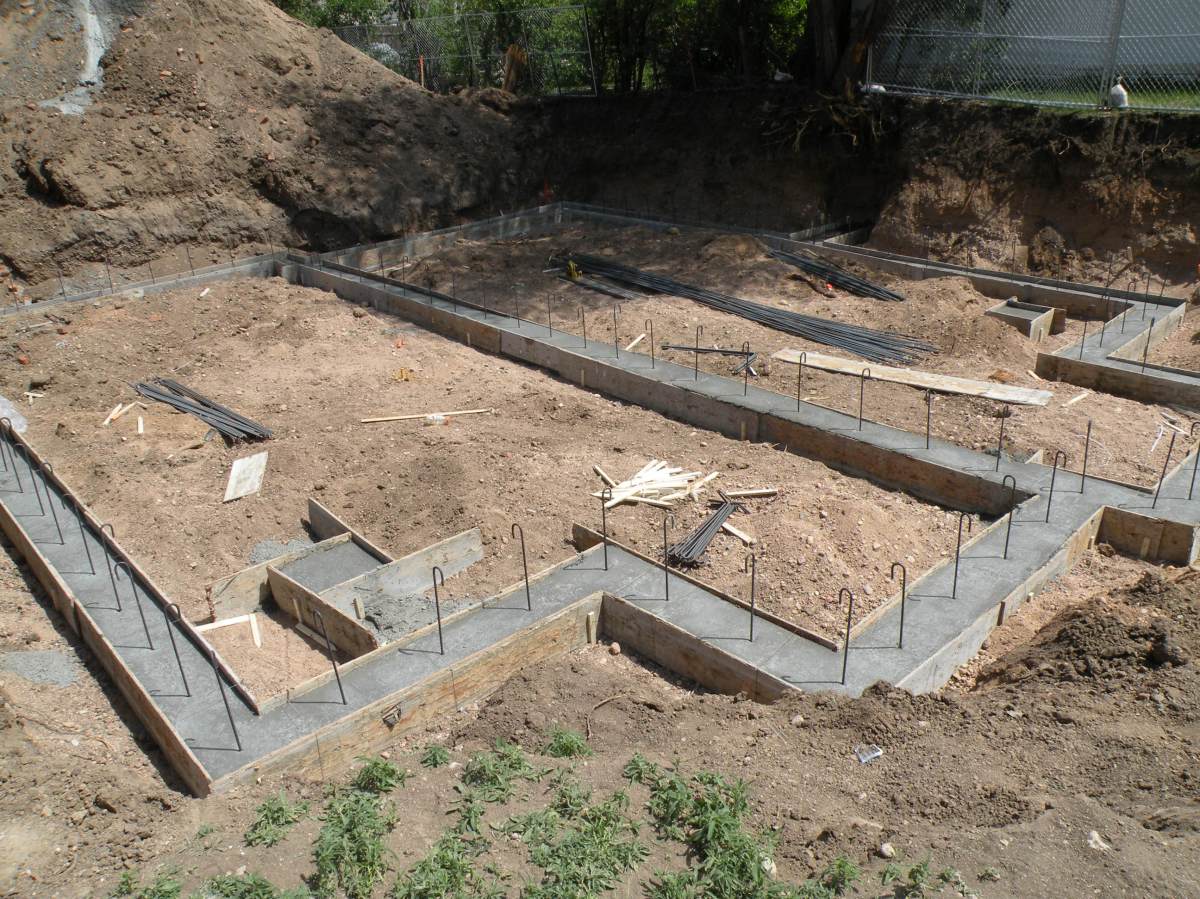
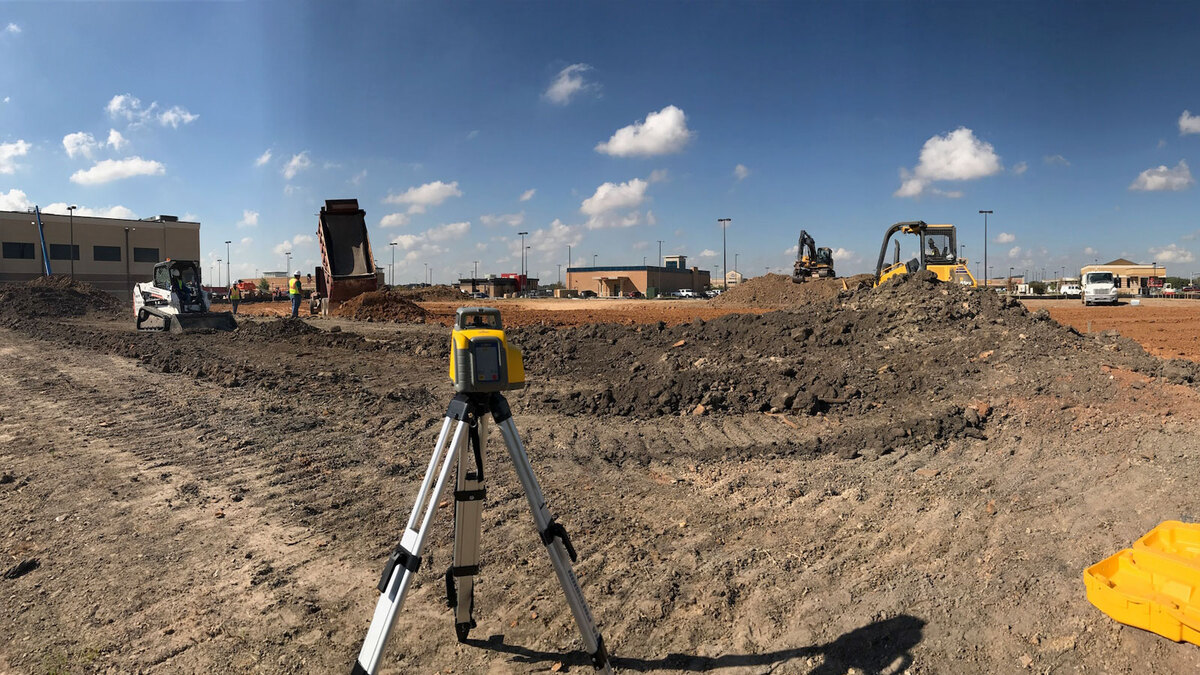

0 thoughts on “What Is A Controller In Construction”